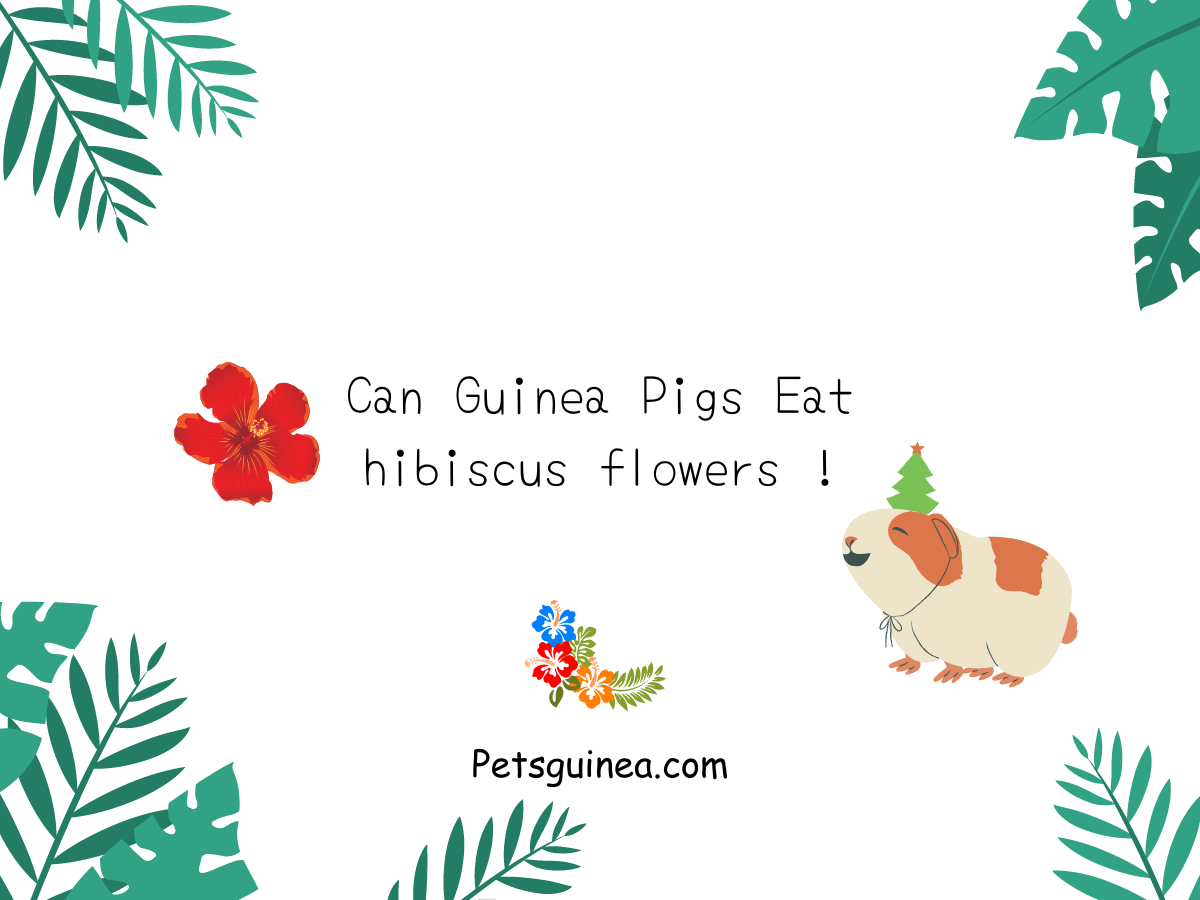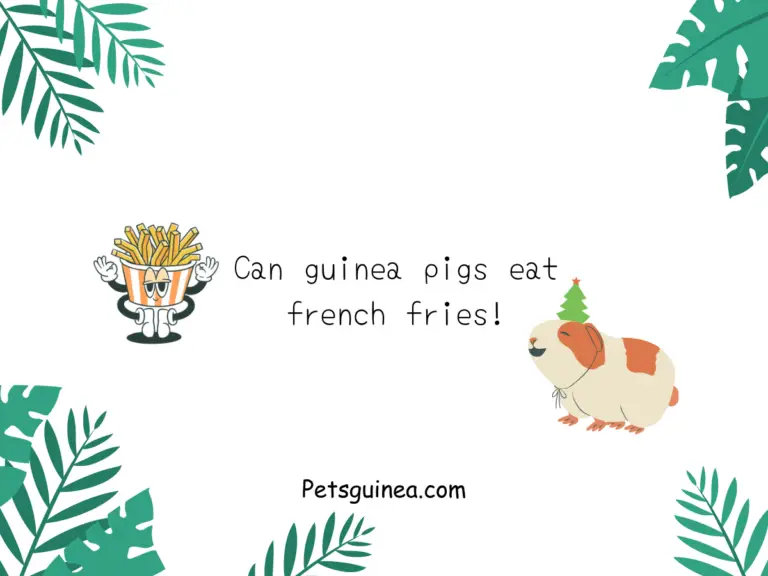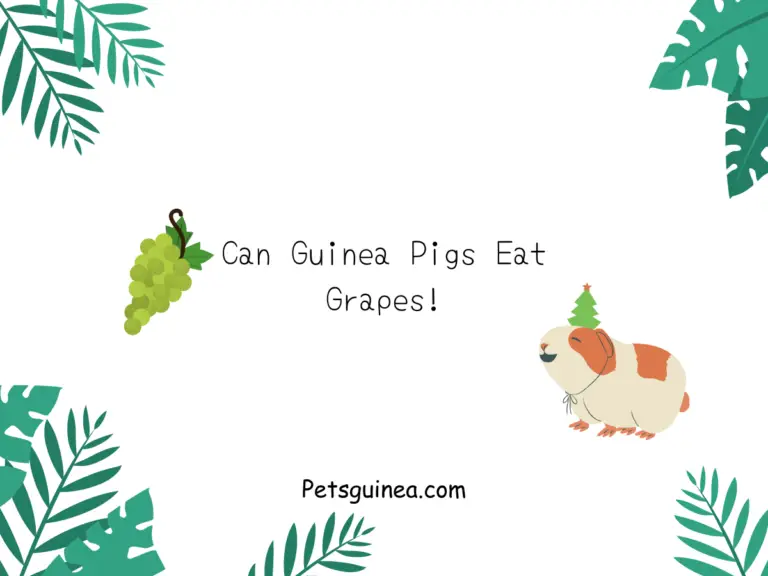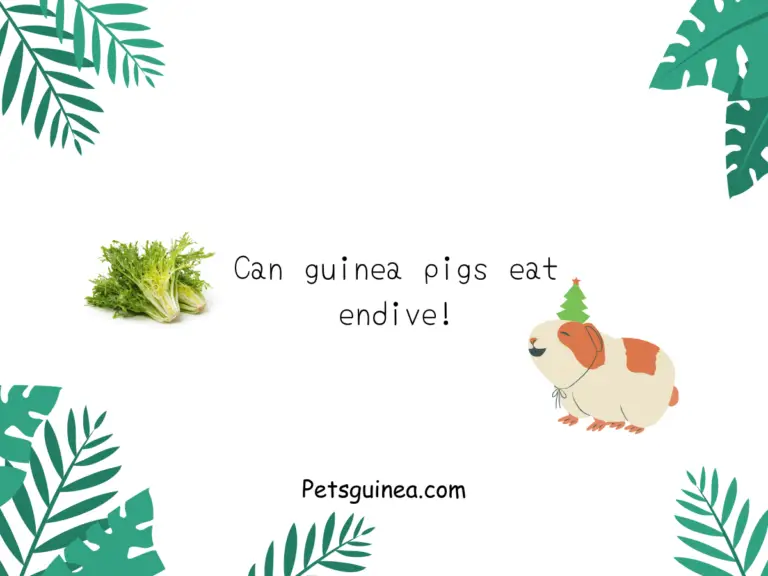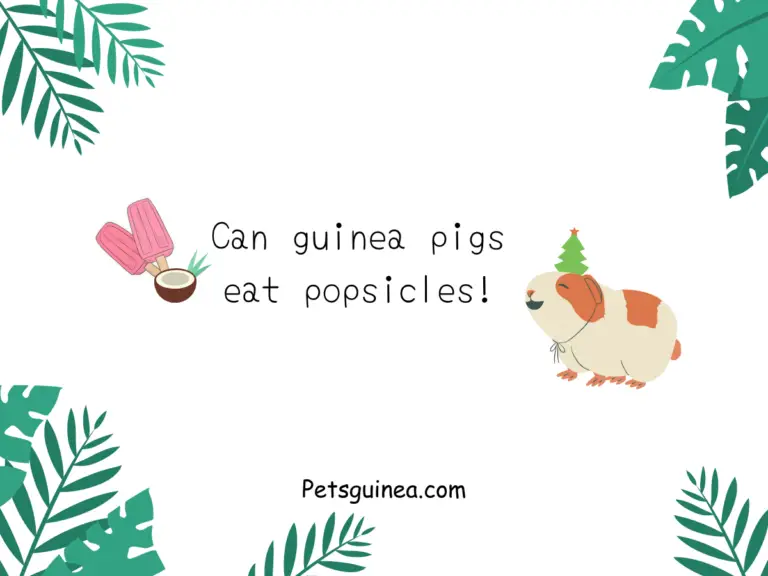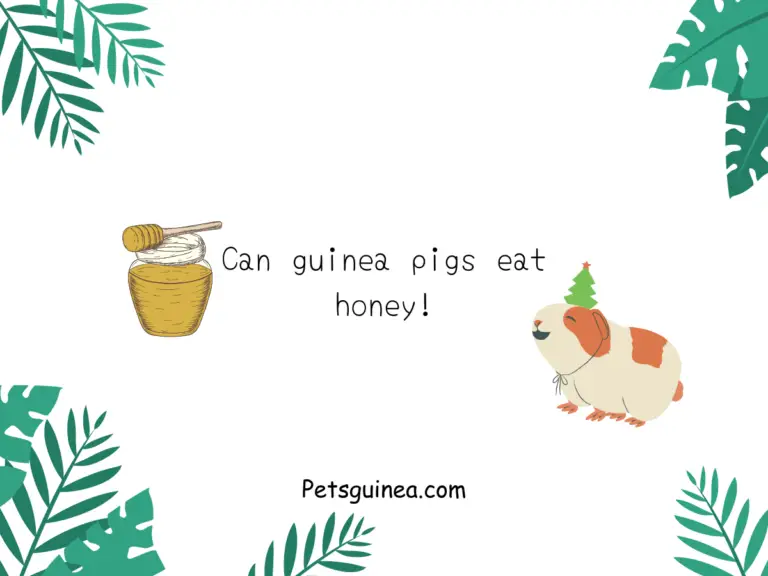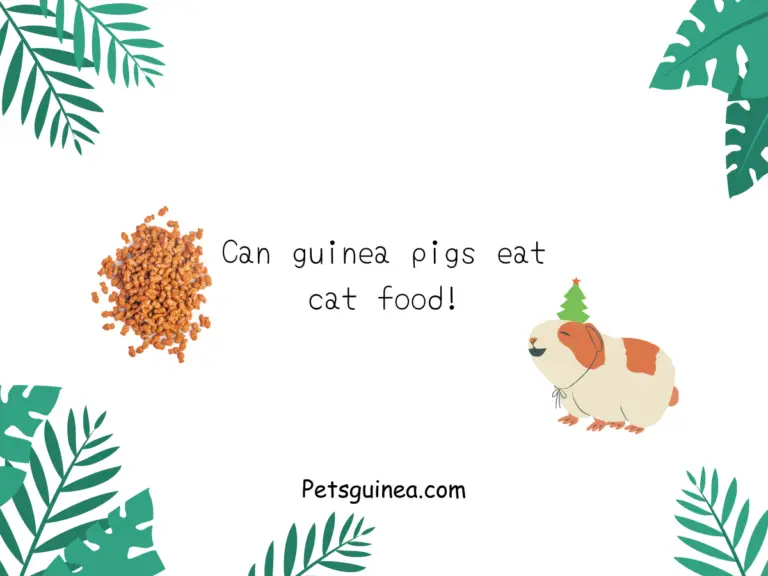Can Guinea pigs eat Hibiscus Flowers?
As a dedicated guinea pig trainer and enthusiast, delving into the intricacies of their diet is not just a passion but a responsibility. One question that often arises among fellow pet owners is, “Can guinea pigs eat hibiscus flowers?” This question sparks a journey of exploration, where we aim to uncover the truths behind this vibrant bloom and its potential impact on our furry companions.
Quick Facts About Hibiscus Flowers
Hibiscus flowers come in various colors, including red, pink, yellow, and white.
They are rich in antioxidants and vitamins, making them a popular choice for human consumption. Hibiscus flowers are often used in herbal teas and culinary dishes for their distinct flavor and potential health benefits.
Is Hibiscus Flowers Good or Bad for Guinea Pigs?
Guinea pigs are herbivores, primarily consuming hay, fresh vegetables, and fruits as part of their diet. While hibiscus flowers may seem like a tempting treat, it’s crucial to assess their suitability for our furry friends.
Benefits of Hibiscus Flowers for Guinea Pigs:
Nutritional Value:
Hibiscus flowers contain vitamins and minerals that can complement a guinea pig’s diet.
Hydration:
The high water content in hibiscus flowers can contribute to a guinea pig’s hydration levels.
Moderation:
Like any new food introduced to a guinea pig’s diet, hibiscus flowers should be given in moderation.
Preparation:
Ensure the hibiscus flowers are fresh and free from pesticides or other harmful chemicals.
Why Hibiscus Flowers Are Bad for Guinea Pigs?
Despite their potential benefits, hibiscus flowers can harm guinea pigs’ health if consumed excessively or under certain circumstances.
Digestive Upset:
Guinea pigs have sensitive digestive systems, and consuming large quantities of hibiscus flowers may lead to digestive upset, including diarrhea or bloating.
Toxicity Concerns:
Some varieties of hibiscus flowers may contain toxic compounds to guinea pigs if ingested in large amounts.
Risks of Feeding Hibiscus Flowers to Guinea Pigs
Digestive Issues:
Guinea pigs are prone to gastrointestinal problems, and introducing new foods, such as hibiscus flowers, can disrupt their digestive balance. The fibrous nature of hibiscus flowers may be challenging for guinea pigs to digest, leading to discomfort and potential health complications.
Toxicity Concerns:
While hibiscus flowers are generally considered safe for human consumption, certain varieties may contain harmful substances to guinea pigs. These toxins can adversely affect their health, causing symptoms such as lethargy, loss of appetite, or even organ damage in severe cases.
How to Recognize That Guinea Pigs Have Eaten Hibiscus Flowers?
Observing changes in your guinea pig’s behavior and physical condition can provide valuable insights into whether they have consumed hibiscus flowers.
Signs of Hibiscus Flower Ingestion:
Altered Stool:
Keep an eye on your guinea pig’s feces for any changes in consistency or frequency, which may indicate digestive issues.
Behavioral Changes:
Watch for signs of lethargy, decreased appetite, or discomfort, which could indicate toxicity or digestive upset.
What to Do If Guinea Pigs Have Eaten Hibiscus Flowers?
If you suspect that your guinea pig has ingested hibiscus flowers, prompt action is essential to mitigate any potential risks to their health.
Steps to Take:
Monitor Symptoms:
Closely watch your guinea pig for any signs of illness or distress.
Consult a Veterinarian:
If you notice any concerning symptoms or have doubts about your guinea pig’s health, seek guidance from a qualified veterinarian.
Modify Diet:
Temporarily remove hibiscus flowers from your guinea pig’s diet and focus on providing them with regular, safe foods to support their recovery.
conclusion
In conclusion, while hibiscus flowers may hold allure with their vibrant colors and potential health benefits, it’s crucial to cautiously approach their inclusion in a guinea pig’s diet. By prioritizing moderation, quality, and attentiveness to your pet’s well-being, you can make informed decisions regarding their dietary choices and ensure their continued health and happiness.
FAQs:
Guinea pigs can eat hibiscus flowers in moderation. These colorful blooms provide essential nutrients like vitamin C and antioxidants, which can benefit your pet’s health. However, ensure the flowers are free from pesticides and other harmful chemicals before offering them to your guinea pig.
Yes, pigs can eat hibiscus flowers as part of their diet. These blooms can provide a tasty and nutritious treat for pigs, offering vitamins, minerals, and hydration. However, it’s essential to offer hibiscus flowers in moderation and ensure they are free from toxins or pesticides.
Hibiscus flowers are generally safe for pets like guinea pigs and pigs to consume. However, certain varieties may contain compounds that could be toxic in large quantities. Researching the specific type of hibiscus and ensuring it is safe for your pet before offering it to them is crucial.
Guinea pigs can safely consume a variety of flowers, including dandelions, roses, and pansies. These blooms can provide essential nutrients and enrichment for your pet’s diet. However, always offer flowers in moderation and ensure they are free from pesticides or other chemicals.

